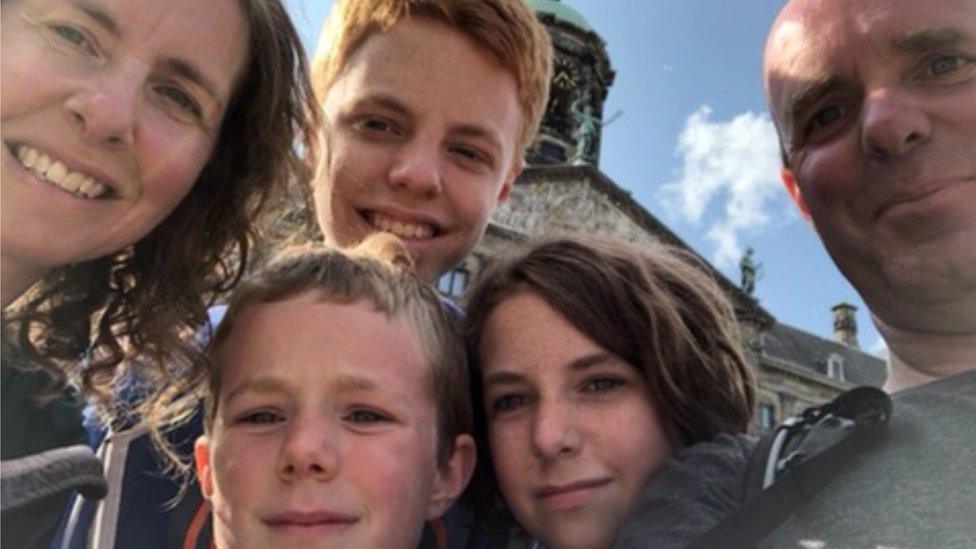Hope for woman waiting 11 years for new kidney
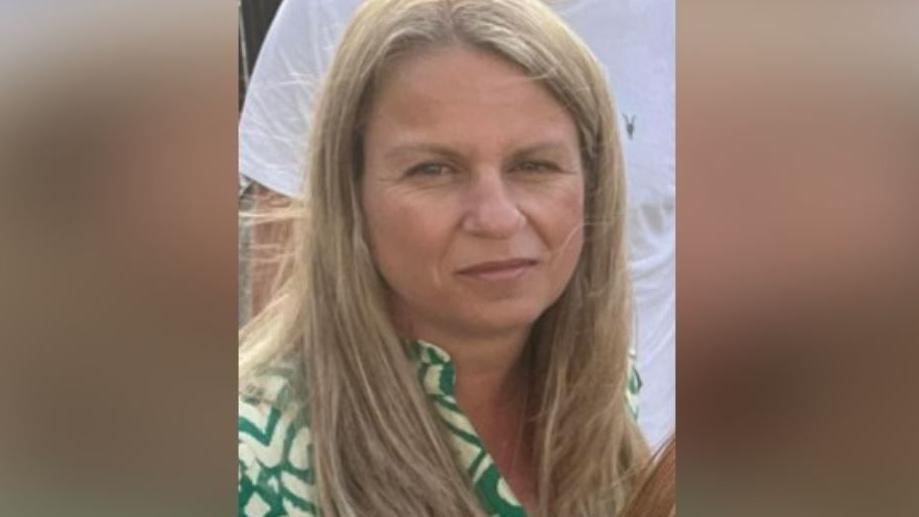
Gemma Louis has waited 11 years for a kidney transplant, instead of an average of 16 months
- Published
A mother-of-two who has waited 11 years for a kidney transplant said a new medical pilot had given her hope.
The average wait for a new kidney is 16 months, but Gemma Louis has waited for years because the chances of her body rejecting a new organ are high.
The 44-year-old, from Chester-le-Street, has to endure 12 hours of dialysis a week and said the life-saving procedure was like "having a second job".
The new programme means kidney patients who usually need transfusions before and after a transplant could get blood better matched to their tissue type to reduce the risk of organ rejection.
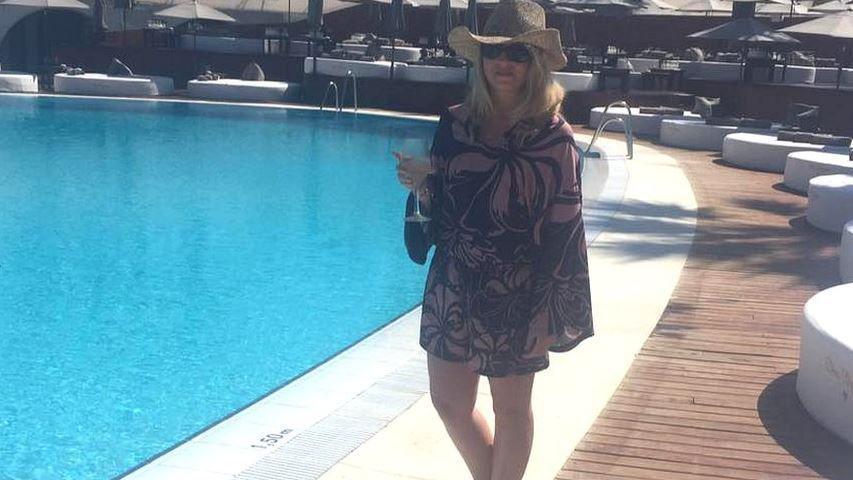
The 44-year-old said a transplant would help her get on with achieving her "bucket list", including more travelling
Ms Louis, a civil servant, has chronic kidney disease and needs four hours of dialysis three evenings a week.
The mother-of-two said her condition had impacted her quality of life.
"It's like having a part-time job - two jobs," she said.
"I go to work on a daytime and on a night I go to dialysis, which if you include travel and being on the machine, it's six hours an evening."
Ms Louis said the condition had restricted her love of travel and that trips had to be planned around where dialysis was available.
"I can't ever do anything spur of the moment. Nothing's ever last minute."
On a weekend trip to Marbella, Ms Louis carried out peritoneal dialysis, a procedure involving a tube through the abdomen, to filter the blood.
To have her treatment, she had to take a suitcase full of fluids and equipment.
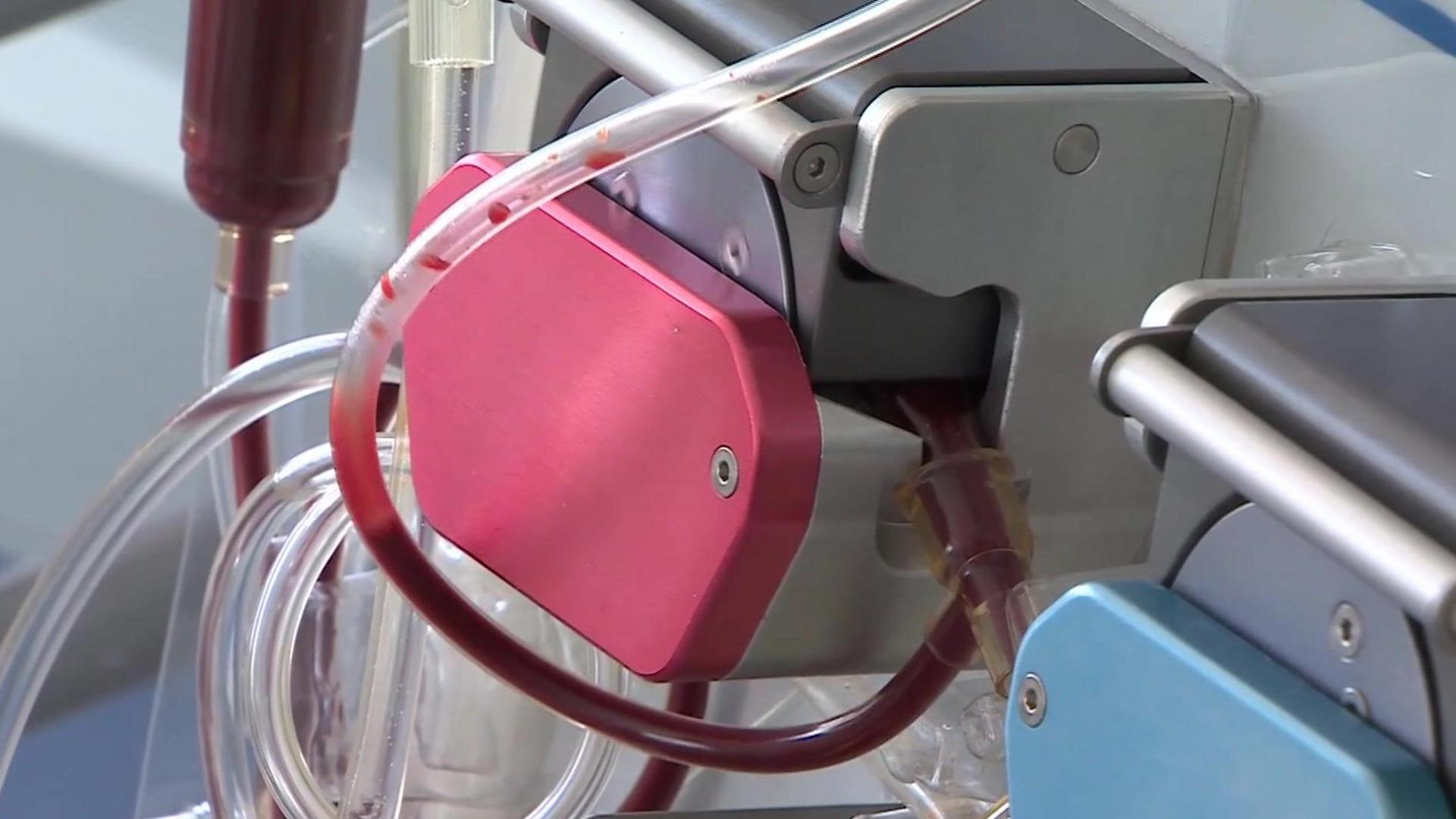
Ms Louis has to have 12 hours of dialysis a week over three evenings and said it was like having a second job
The pilot scheme at London's Hammersmith Hospital sees scientists making sure blood for kidney transplant patient transfusions is better matched, not just to their blood type, but also their tissue type.
The closer match reduces the chances of patients producing antibodies which can "attack" new organs.
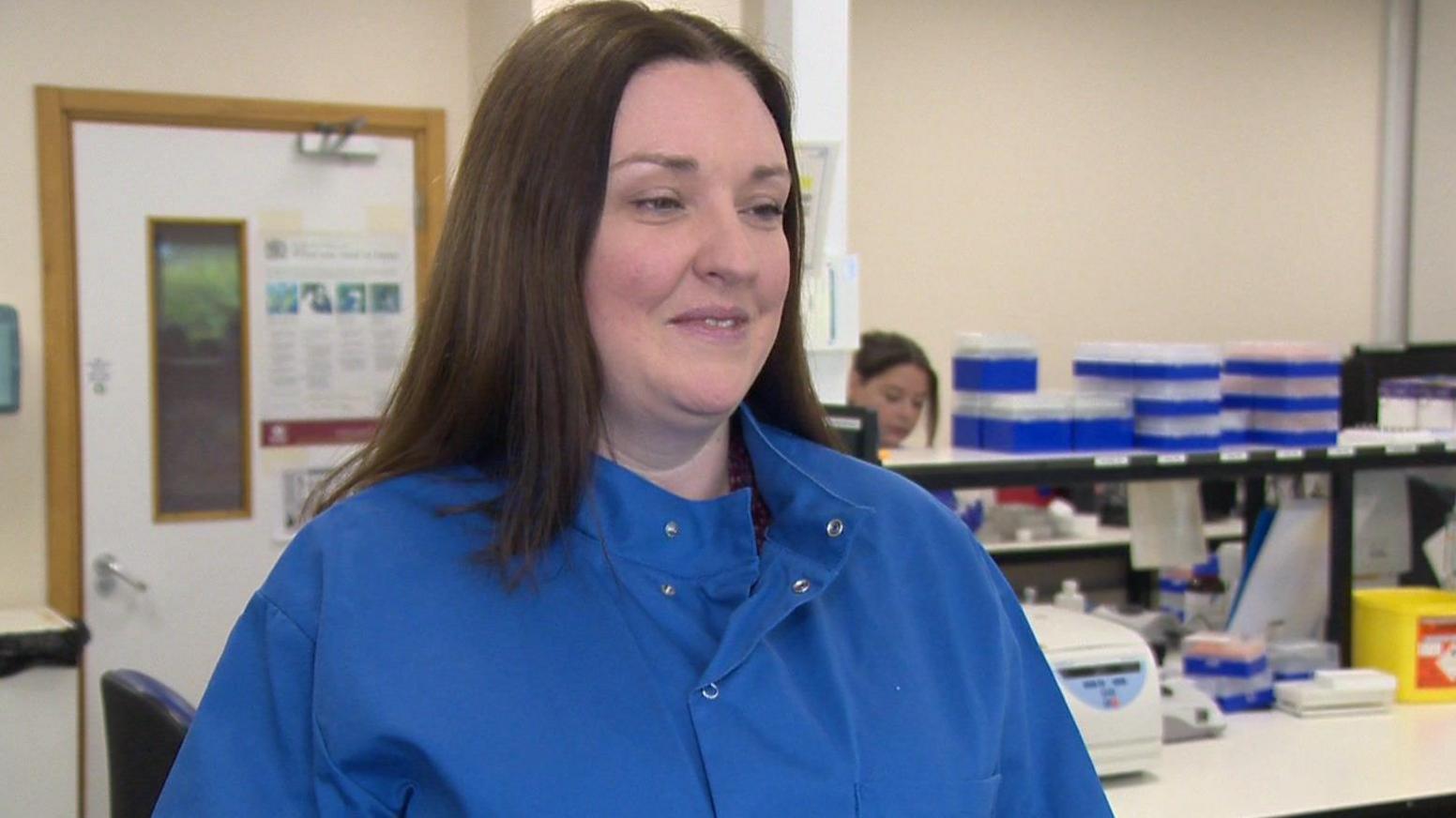
Clinical scientist Ruth Chisman said the programme would help reduce organ rejection and could help hundreds of patients if rolled out to the region
Clinical scientist, Ruth Chisman, is the deputy head of the NHS Blood and Transplant Centre in Newcastle, which organ matches for the region.
She said she was hopeful the programme, which would need to attract thousands of new blood donors, would be rolled out to the North East and Cumbria.
"We have 300 patients in our region waiting for kidney transplants and a handful of them, 10 to 15, have waited as long as Gemma, 10 years or more, which means attending hospital for dialysis," she said.
"This can be multiple times a week which is a very restrictive lifestyle.
"It's much better and healthier for the patients and the NHS if we can get them transplanted."
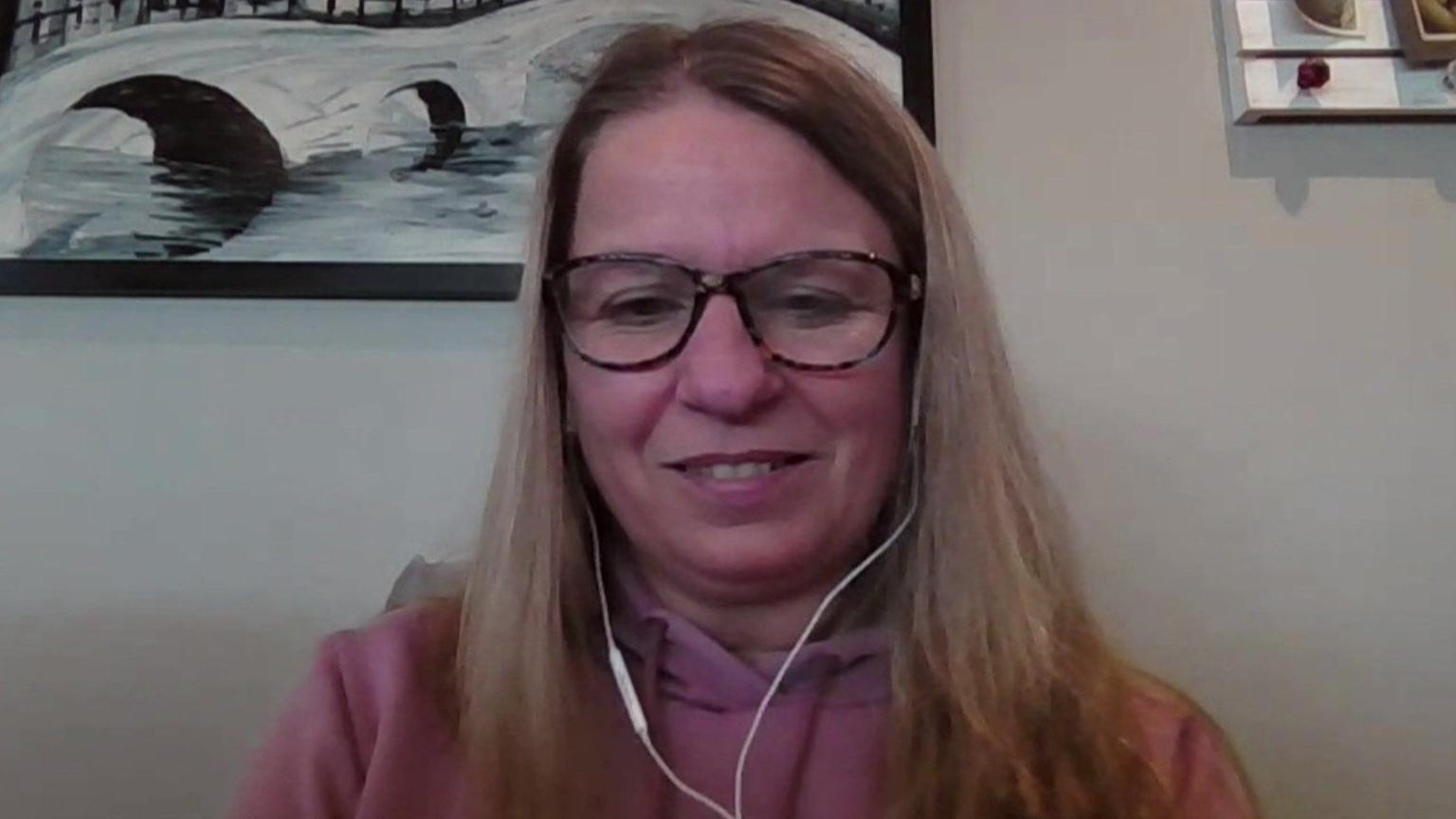
Gemma Louis said she had to plan trips away based on where dialysis was available
All adults in England are now considered to have agreed to be an organ donor when they die, unless they have expressly opted out.
However, their loved ones can overturn this wish.
Lynn Robson, specialist nurse in organ donation based at the Newcastle centre, said it was important that registered donors had a conversation with their next of kin so they were clear on what they wanted to happen after their death.
"Donors need to have the conversation with their loved ones so they are certain of their wishes," she said.
"It is a time of immense sadness losing a loved one, but many families take great comfort and feel pride knowing that they have helped save lives."
Ms Louis said it would be "great" to get her life back.
"I've a huge bucket list. I'd like to travel across America and see the Northern Lights," she said.
She said she knew life would not be "perfect", as transplant was not a cure, but it "would be much better".
"I want to go where I want to go, not where dialysis dictates I should go," she said.
Follow BBC North East on X (formerly Twitter), external, Facebook, external and Instagram, external. Send your story ideas to northeastandcumbria@bbc.co.uk.
Related topics
More stories from the BBC
- Published10 April 2024
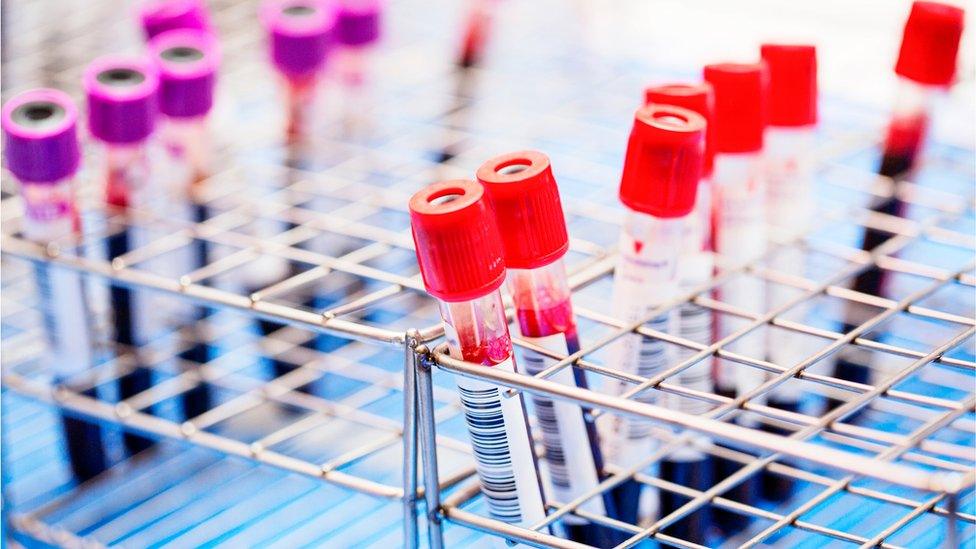
- Published4 April 2024
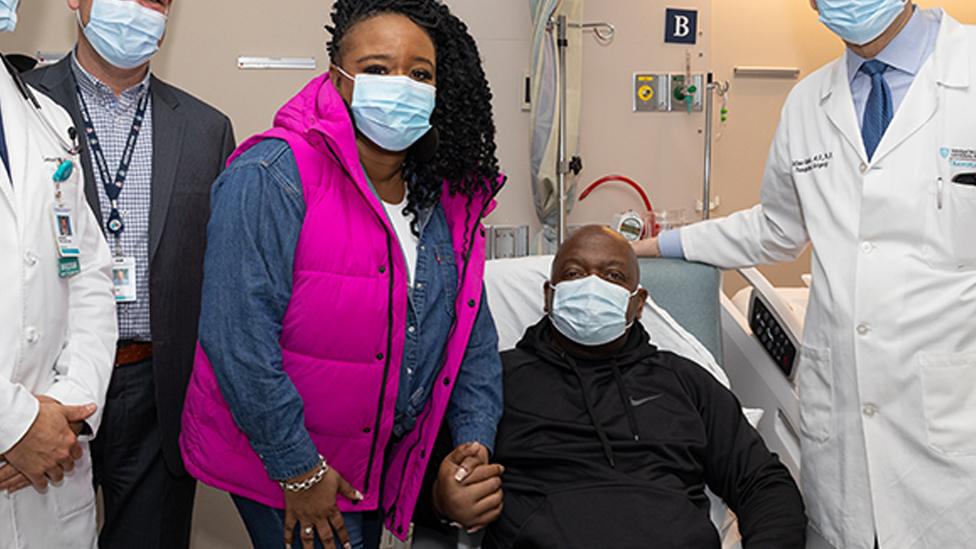
- Published16 February 2024
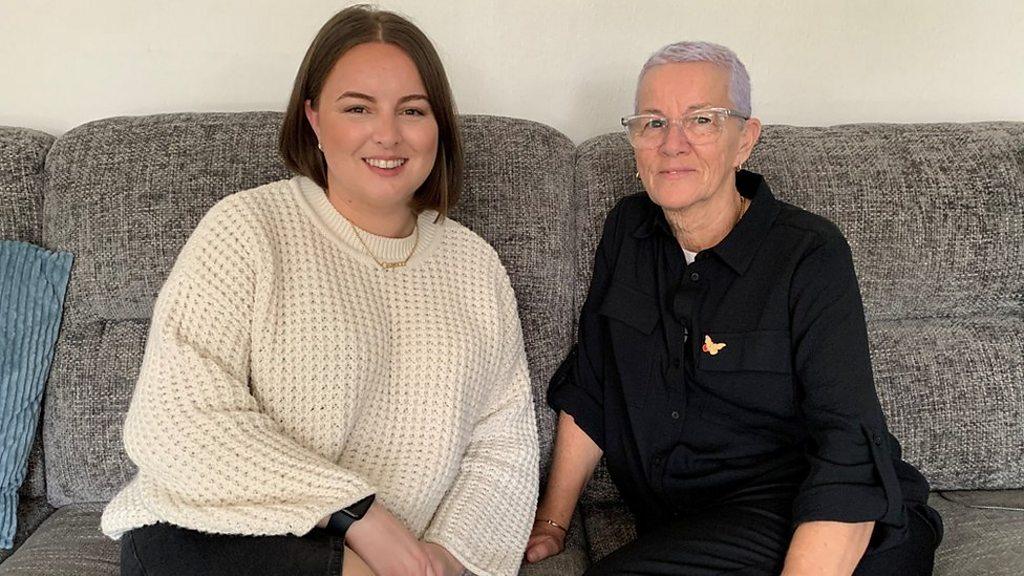
- Published23 September 2023
